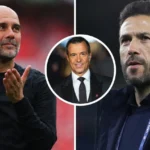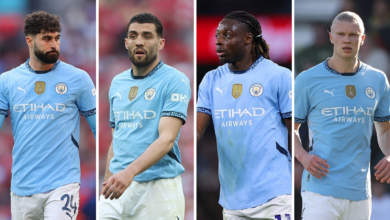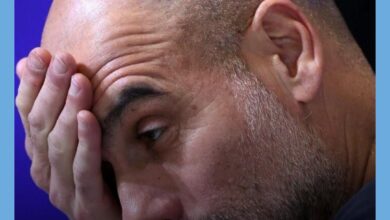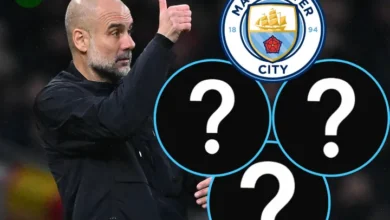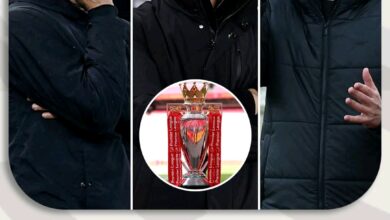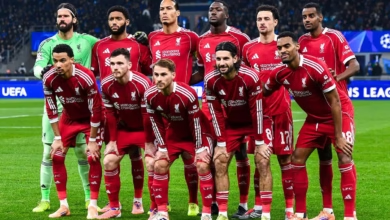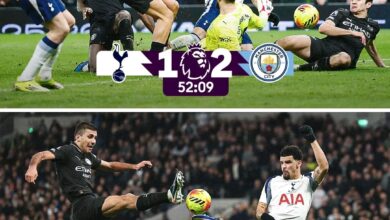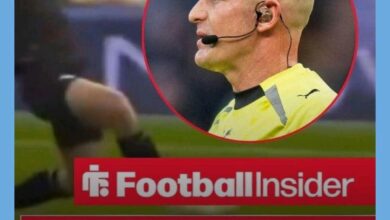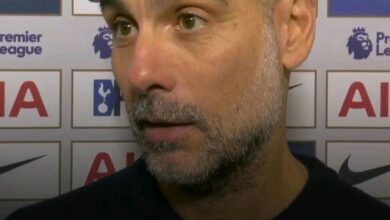Manchester City’s Goalkeeper Revolution: The Diogo Costa Transfer Saga
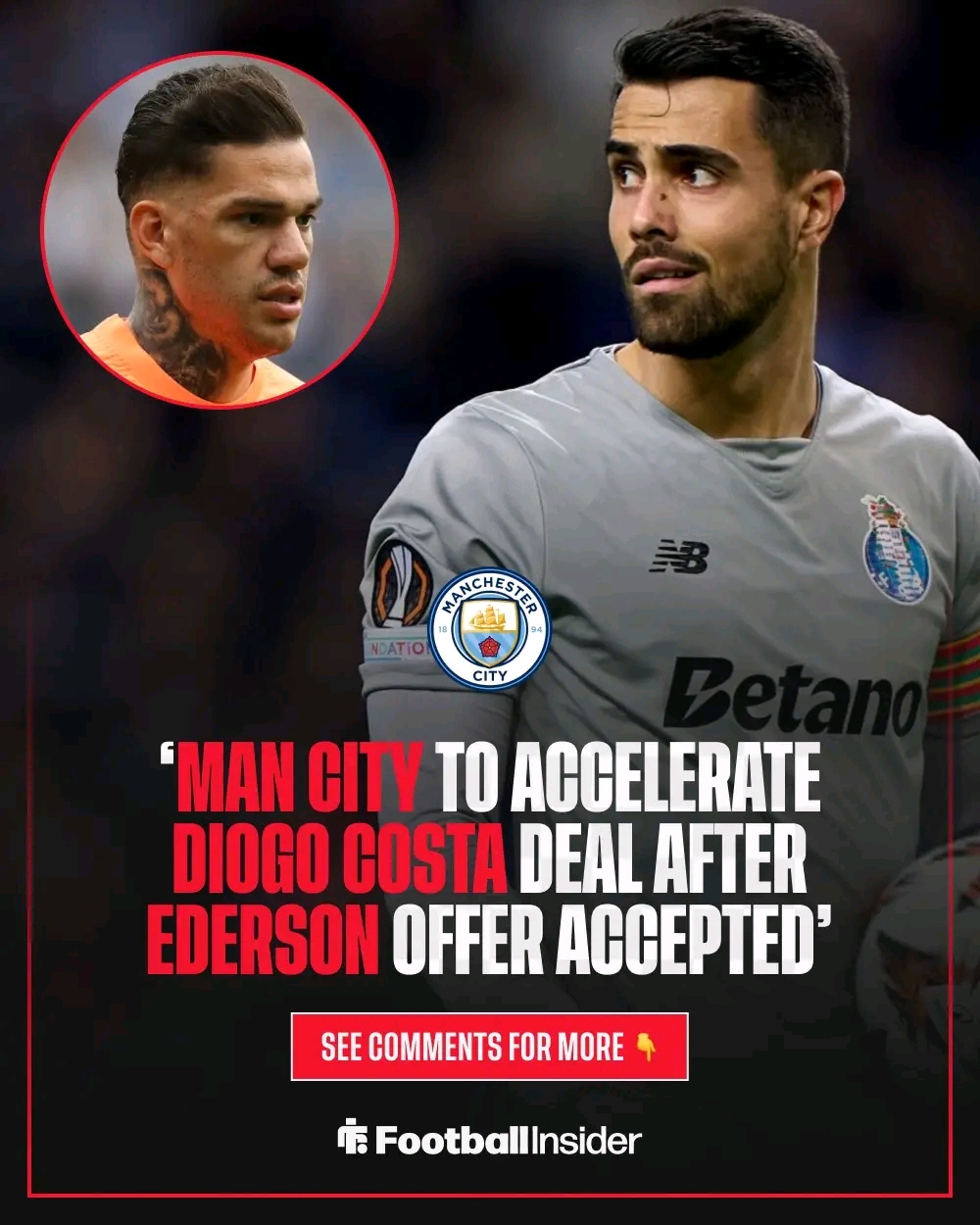
The summer transfer window of 2025 has brought with it a fascinating narrative surrounding Manchester City’s goalkeeping position, with Porto’s Diogo Costa emerging as the prime candidate to potentially replace the long-serving Ederson between the sticks at the Etihad Stadium. This developing story represents more than just a simple player swap; it encapsulates Manchester City’s evolving tactical philosophy, their strategic approach to squad renewal, and the ever-present influence of financial powerhouses from the Saudi Pro League in modern footbal
Ederson Santana de Moraes has been a cornerstone of Manchester City’s success since his arrival from Benfica in 2017. The Brazilian goalkeeper has revolutionized the position with his exceptional ball-playing abilities, becoming the archetype for the modern sweeper-keeper that Pep Guardiola’s system demands. His range of passing, comfort in possession, and ability to initiate attacks from the back have made him an indispensable component of City’s tactical machinery for the better part of a decade.
However, the 2025 summer transfer window has brought unprecedented uncertainty regarding Ederson’s future at the club. With just one year remaining on his current contract, the 31-year-old finds himself at a crossroads that could define the next phase of his career. The allure of the Saudi Pro League, with its astronomical financial packages and reduced competitive pressure, has created a genuine possibility that one of the Premier League’s finest goalkeepers could be tempted away from European football.
The timing of this potential departure is particularly significant for Manchester City. Guardiola’s side has built their recent success around a core group of players who have been together for several years, and any disruption to this established hierarchy requires careful planning and strategic foresight. Ederson’s potential exit would not merely represent the loss of a goalkeeper; it would necessitate finding a replacement who can seamlessly integrate into one of the most complex and demanding tactical systems in world football
Enter Diogo Costa, the 25-year-old Portuguese international who has emerged as Manchester City’s preferred candidate to fill the considerable void that Ederson’s departure would create. Costa’s rise to prominence has been meteoric, transforming from a promising youth player at Porto to one of Europe’s most coveted goalkeepers in a relatively short period.
What makes Costa particularly attractive to Guardiola and his coaching staff is his profile as a complete modern goalkeeper. Unlike traditional shot-stoppers who excel primarily between the posts, Costa combines exceptional reflexes and positioning with the technical abilities required to function as an additional outfield player when his team is in possession. His distribution, both with his feet and hands, demonstrates the precision and range that Guardiola demands from all his players, regardless of position.
The 25-year-old’s performances for both Porto and the Portuguese national team have not gone unnoticed by Manchester City’s extensive scouting network. According to well-placed sources within the game, City’s scouts have been monitoring Costa extensively, compiling detailed reports on his technical abilities, tactical understanding, and psychological profile. These assessments have consistently highlighted his suitability for Guardiola’s system and his potential to seamlessly transition into the unique demands of Premier League football.
Costa’s age profile also aligns perfectly with Manchester City’s long-term planning. At 25, he represents the ideal combination of experience and potential, old enough to handle the immediate pressures of replacing a club legend like Ederson, yet young enough to serve as the club’s first-choice goalkeeper for the next decade. This longevity aspect is crucial for a club that has increasingly focused on sustainable success rather than short-term fixes in the transfer market.
The potential transition from Ederson to Costa represents more than a simple personnel change; it could signal a subtle evolution in Manchester City’s tactical approach. While both goalkeepers share the technical attributes necessary to function in Guardiola’s system, their individual strengths and characteristics could influence how the team approaches certain phases of play.
Ederson’s extraordinary range of passing has allowed Manchester City to bypass opposition pressing with pinpoint long balls, creating immediate attacking opportunities from defensive situations. His ability to find teammates 60 or 70 yards away with remarkable accuracy has become a signature element of City’s buildup play. Costa, while possessing excellent distribution skills, may offer a slightly different profile in this regard, potentially encouraging the team to rely more heavily on shorter, intricate passing sequences through the midfield lines.
The Portuguese goalkeeper’s shot-stopping abilities have been particularly impressive throughout his career, suggesting that Manchester City might benefit from enhanced security in their penalty area. While Ederson’s reflexes and positioning have generally been excellent, some observers have noted occasional lapses in concentration or positioning that have cost the team crucial goals in high-pressure situations. Costa’s track record suggests a goalkeeper who combines reliability with spectacular reflexes, potentially offering City additional peace of mind in defensive situations.
Furthermore, Costa’s experience in European competition, including Champions League matches with Porto, provides him with the necessary background to handle the pressures and unique challenges that come with representing Manchester City in continental competition. His performances against elite opposition have demonstrated his ability to rise to the occasion when the stakes are highest, a quality that will be essential if he is to succeed at the Etihad
The potential transfer of Diogo Costa to Manchester City must be understood within the broader context of modern football’s financial landscape. The involvement of Saudi Arabian clubs in the Ederson situation exemplifies how the influx of petrodollars has disrupted traditional transfer patterns and created new possibilities for player movement.
The Saudi Pro League’s aggressive pursuit of high-profile players has created a scenario where clubs like Manchester City can potentially generate significant transfer fees for players who might otherwise have limited market value due to age or contract situations. Ederson’s potential move to Saudi Arabia could provide City with the financial resources necessary to pursue Costa while simultaneously clearing a significant salary from their wage bill.
This dynamic creates a win-win situation for all parties involved. Ederson would receive a financially lucrative contract that could set him up for life beyond football, Manchester City would receive substantial transfer funds to reinvest in their squad, and Costa would have the opportunity to join one of Europe’s premier clubs at the peak of his career. The circular nature of this potential transaction demonstrates the interconnected nature of the modern transfer market and how strategic planning can create benefits for multiple stakeholders.
The timing of any potential deal will be crucial, as Manchester City will want to ensure they have adequate time to integrate Costa into their system before the new season begins in earnest. Pre-season preparation becomes particularly important for goalkeepers, as they need to develop understanding and communication with their defensive teammates, familiarize themselves with the specific demands of their new club’s tactical system, and adapt to the unique characteristics of different stadiums and playing surfaces
Beyond the tactical and financial considerations, the potential arrival of Costa would represent a significant shift in Manchester City’s squad dynamics. Ederson has been more than just a goalkeeper for the club; he has served as a leader, a character in the dressing room, and a symbol of the club’s evolution under Guardiola’s guidance. Replacing such a figure requires careful consideration of the human element involved in team chemistry and group psychology.
Costa’s personality and leadership qualities will be crucial factors in determining the success of any potential transfer. The Portuguese goalkeeper will need to demonstrate not only the technical abilities to perform at the highest level but also the character to command respect from teammates who have become accustomed to Ederson’s presence and influence. This transition period could be particularly challenging, as the new goalkeeper will need to establish himself while maintaining the standards and expectations that have become synonymous with the position at Machester City.
The presence of experienced defenders like Ruben Dias, who shares Costa’s Portuguese nationality, could prove invaluable in facilitating this transition. The existing relationship and shared linguistic background between the two players could help Costa integrate more quickly into the squad’s social dynamics and tactical understanding. This cultural connection may provide Manchester City with an additional advantage in making the transition as smooth as possible.
The Diogo Costa transfer saga represents just one element of what appears to be a broader strategic refresh of Manchester City’s squad. With several key players entering the latter stages of their careers and contract situations requiring resolution, the club faces important decisions about the composition and direction of their team for the next several years.
The potential departure of other influential players, combined with the ongoing development of younger talents within the squad, suggests that Manchester City is entering a transitional phase that could define their competitiveness for the next decade. The success of transfers like the potential Costa acquisition will be crucial in determining whether the club can maintain their position at the pinnacle of English and European football.
Guardiola’s role in this transition cannot be overstated. The Catalan manager’s ability to integrate new players into his complex tactical system while maintaining the club’s winning mentality will be tested as familiar faces potentially depart and new characters arrive. The Costa transfer, if it materializes, will serve as an early indicator of how successfully the club can navigate this period of change
The developing situation surrounding Diogo Costa and Manchester City represents a fascinating case study in modern football’s complexity, encompassing tactical evolution, financial strategy, squad management, and long-term planning. The potential transfer embodies the challenges and opportunities that elite clubs face as they attempt to balance continuity with necessary change.
Should the transfer materialize, it will mark not just the arrival of a new goalkeeper, but the beginning of a new chapter in Manchester City’s ongoing story. The success of this potential transition will be measured not only in trophies won and clean sheets kept, but in the seamless continuation of the club’s footballing philosophy and competitive standards.
The coming weeks will likely provide clarity on whether this transfer saga reaches its anticipated conclusion, but regardless of the outcome, the situation has already demonstrated the intricate planning and strategic thinking that characterizes Manchester City’s approach to squad development in the modern era. The Diogo Costa story, whether it ends at the Etihad or elsewhere, will undoubtedly be remembered as a significant moment in the evolution of both clubs involved and the broader landscape of European football.



